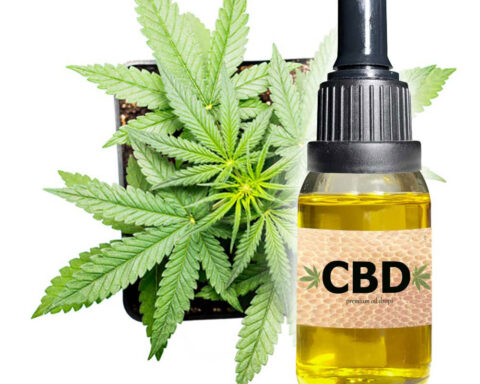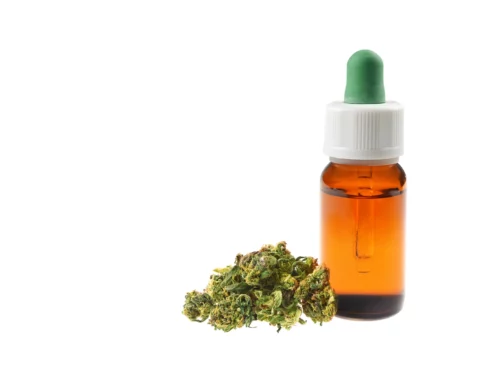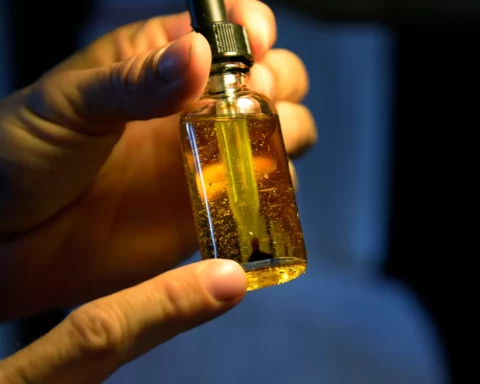According to one study, acne is the commonest of skin conditions that human beings have to deal with. It is characterized by blackheads and whiteheads and leaves people spots that constantly remind them of the condition. Worse off, some people have to suffer from acne from time to time, and they are forced to learn to live with the situation. Hormonal acne is yet another form of acne caused by hormonal balance. It affects women, but men may also suffer from them. Meanwhile, the hype around CBD oil increases every other day, and it seems like there is almost nothing the cannabinoid cannot help with. Can CBD oil help reduce acne caused by hormones? Here is all you need to know.
Why Is Acne Caused by Hormones a Major Challenge?
Acne is not the easiest skin condition to deal with. Yet, when acne is caused by hormones, you already know how hard it is. The acne comes as blackheads and whiteheads that form spots. They affect the T-area, encompassing the forehead, nose, and chin. What’s more, the papules and the black/whiteheads take the form of cystic lumps that appear under the skin, meaning the conventional topical medication for acne may not work for them. Moreover, they progress into inflammation and pain, never seeming to end.
Conventional Medication for Acne Caused by Hormones
Hormonal acne is among the most difficult skin conditions to handle. The cystic lumps that characterize hormonal acne affect the under-skin and tend to be resistant to creams used on acne. As such, women and men suffering from hormonal acne opt for oral medications, especially oral contraceptives, to correct the hormonal imbalance and possibly solve the acne. However, this has not always worked for everyone, which is why one may wonder whether CBD oil might help with hormonal acne.
Does CBD Oil Treat Hormonal Acne?
Although CBD oil is touted as an all-around solution to many conditions, it might not be everyone’s go-to option when looking for treatment for hormonal acne. CBD oil studies are limited, and there are not enough scientific studies to prove that CBD oil might treat hormonal acne. However, one study by Kircik, (2019).,points out that the cannabinoid may help reduce acne by slowing down the causes and triggers or by intervening on the side effects. Below are explanations on how this is possible.
CBD Oil for Excess Sebum Production
Although hormonal acne is a special type of acne caused by fluctuating hormonal levels, it is still a type of acne. This basically means that the process by which the blackheads and whiteheads appear is technically the same. Acne occurs when a trigger, such as hormonal imbalance, causes the body to produce excess sebum. The sebocytes should secrete enough sebum to nourish the skin, but when too much is produced, the oily substance leads to acne breakout. Could CBD help with any of these? Likely, but there is not enough scientific evidence to prove this. One study done by Oláh, et al., (2014)., observed that CBD oil could interact with the sebocytic system, making the cells reduce sebum production, ultimately reducing acne.
CBD Oil for Powerful Antibacterial and Antifungal Effects
Propionibacterium acnes is a bacterium that causes acne and whose production happens in the body. This means that the body harbors some conditions that favor acne production, which increases sebum production, making the cycle complicated and worse. As such, anything that can help slow down the production of the bacteria definitely reduces acne, and its symptoms, including blackheads, whiteheads, papules, and the painful under-skin lumps. Can CBD oil help reduce acne caused by hormones by interrupting the production of the acne-causing bacteria? Likely, but there is not enough evidence to make this conclusion. One research by Andre, et al., (2016), suggests that cannabis plants have potent antifungal and antibacterial properties and may prevent infections caused or triggered by bacteria and fungi. CBD oil is one of the active compounds in cannabis plants, and applying the same line of reasoning suggests that CBD oil could reduce hormonal acne by slowing down the proliferation of acne-causing bacteria, P. acnes. Nonetheless, there is a need for further studies to confirm this before recommending CBD oil for this role.
CBD Oil for Inflammation
Inflammation is a trigger, cause, and a result of acne, including hormonal acne. Acne and inflammation are two factors in a vicious cycle, and each can exacerbate and result in the other. Ultimately, inflammation results in pain, even when caused or resulting from hormonal acne. Yet, one study done by Burstein, (2015)., comments that CBD oil has powerful anti-inflammatory properties, meaning that it can fight inflammation by hormonal acne. However, there is not enough scientific evidence to prove that CBD oil has anti-inflammatory properties, so we cannot recommend CBD oil for inflammation.
How Can You Use CBD Oil to Reduce Acne Caused by Hormones?
CBD oil is available as tinctures taken sublingually or orally, vapes that are atomized, edibles that one eats or chews, capsules for swallowing, and more. There is a study on CBD oil by Oláh, et al., (2016)., for hormonal acne, that addresses the challenges of acne caused by hormonal imbalance. However, oral CBD oil may be the most ideal option for hormonal acne. This is the case primarily because the cystic lumps that characterize hormonal acne go beyond the outer layer of the skin, and while you may want to apply CBD oil, it might be effective. As such, you might consider CBD capsules and tinctures for the acne. Still, study is not recommending CBD oil for hormonal acne since there is not enough evidence to support this.
Conclusion
Acne can be caused by hormones when puberty or menopause, among other factors, trigger excess production of hormones, leading to overproduction of sebum. There is not enough evidence to show that CBD oil might treat hormonal acne, but early research points out to unique CBD oil properties that might result in reduced breakouts and acne. Some research suggests that CBD oil has anti-inflammatory properties and may reduce inflammation from acne, including hormonal acne. Besides, CBD oil seems to reduce sebum production, further reducing acne, and it prevents the proliferation of acne-causing bacteria. Nonetheless, research is not recommending CBD oil for hormonal acne, but consult a doctor if you choose to go that route.
References
Andre, C. M., Hausman, J. F., & Guerriero, G. (2016). Cannabis Sativa: The Plant Of The Thousand And One Molecules. Frontiers In Plant Science, 7, 19.
Burstein, S. (2015). Cannabidiol (CBD) And Its
Analogs: A Review Of Their Effects On Inflammation. Bioorganic &
Medicinal Chemistry, 23(7), 1377-1385.
Kircik, L. H. (2019). What’s New In The
Management Of Acne Vulgaris. Cutis,
104(1), 48-52.
Oláh, A., Tóth, B. I., Borbíró, I., Sugawara, K.,
Szöllõsi, A. G., Czifra, G., … & Bíró, T. (2014). Cannabidiol Exerts
Sebostatic And Antiinflammatory Effects On Human Sebocytes. The Journal Of
Clinical Investigation, 124(9), 3713-3724.
Oláh, A., Markovics, A., Szabó‐Papp, J., Szabó, P. T., Stott, C., Zouboulis, C.
C., & Bíró, T. (2016). Differential Effectiveness Of Selected Non‐Psychotropic Phytocannabinoids On Human
Sebocyte Functions Implicates Their Introduction In Dry/Seborrhoeic Skin And
Acne Treatment. Experimental Dermatology, 25(9), 701-707.









